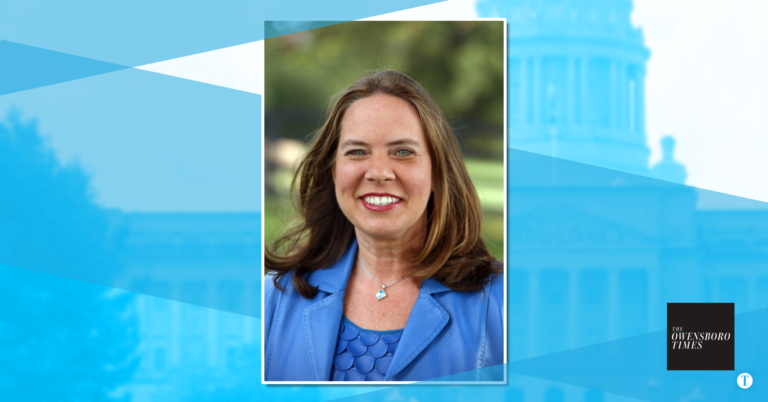Will the Second Amendment, appearing as the second question on ballots across Kentucky, allow the state legislature to debate and potentially reform Kentucky’s approach to K-12 education? We are asking voters what they think.
State Rep. Suzanne Miles, who introduced the bill and is its lead sponsor, said the amendments would allow the General Assembly to consider new approaches to education.
Miles represents Kentucky’s 7th District, which covers part of Davis County, and is the majority caucus chairman in the Kentucky House of Representatives. Mr. Miles, a leading proponent of the amendment, expressed his belief that education should adapt to meet the needs of all students.
“I strongly believe that education is the path to success for all children, regardless of their socio-economic, demographic, or circumstances,” Miles said, adding that the current K-12 education system He added that it functions as a “one size fits all” case. ”
“Kentucky is a lonely island in our country that has been left behind,” she said, referring to the federal government’s “No Child Left Behind” movement from the early 2000s.
If passed, Amendment 2 would give the General Assembly the power to consider a wide range of options similar to those offered in other states that already have school choice programs in place. Miles said school choice simply means lawmakers may have several options to consider.
“Almost every state, including all seven of our neighboring states, has some form of school choice,” Miles said. “This amendment will begin a conversation with Kentuckians about how taxpayer-funded education can be a model of education that leaves no child behind.”
Miles noted that the amendment would not implement immediate changes or propose specific policies, but would allow lawmakers to consider modernizing Kentucky’s education system. . She says the current framework, rooted in a constitution adopted more than 100 years ago, limits flexibility to effectively manage funding to meet today’s educational needs.
“This is not a question of money, it’s a question of financial management, which is limited by a constitution that was established over 100 years ago,” she says. “At the time, the framers could not have imagined the potential advances in technology, transportation, and access to K-12 education.”
Miles emphasized that Kentucky taxpayers have a say in how their endowments are allocated to education.
“How do they want to invest their tax dollars? Is it the way it’s been in the past or the way it’s going to be in the future so that some or all of them can get the best education?” she said. asked Kentuckians, emphasizing that it is up to Kentuckians to decide whether to maintain the current system or consider school choice options aimed at addressing a broader range of needs.
The proposed ballot text would read as follows:
“To give parents choice about their children’s educational opportunities, Congress can provide financial support for the education costs of students in kindergarten through grade 12 who are outside the regular (public) school system. What is the Kentucky Constitution listed below?
If passed, the proposed constitutional amendment would read as follows:
“The General Assembly may provide financial support for the education of students outside the regular school system. Articles 59, 60, 171, 183, 184, 186 of this Constitution. Notwithstanding Articles 189 and 189, the General Assembly may exercise this power by law.
Miles said the amendment is also an opportunity for Kentucky to learn from the successes and failures of other states that already have various school choice initiatives in place.
“Most other states have evidence of what works and what doesn’t work,” she said. “This will allow legislators, families, and educators to evaluate best practices as Kentucky wants to consider new opportunities and goals for the development of all children.”
Miles characterized the amendment as ensuring educational freedom and equity for all Kentucky students. She said a “yes” vote on the Second Amendment is a vote that respects the educational freedom of every child.
“Children are our future and the success of our Commonwealth depends on them,” she said.
Early voting in Davis County will be held at the Owensboro Sports Center from 8 a.m. to 4 p.m. daily Thursday through Saturday. Election day is November 5th. Davis County residents can vote at one of 14 local polling locations that day from 6 a.m. to 6 p.m.


